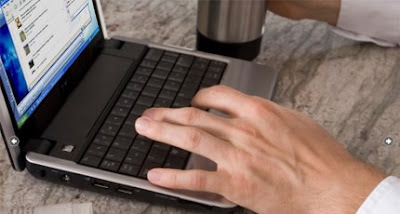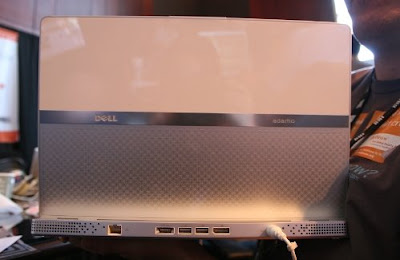
It’s a mixed up crazy world. Just as we digest news that Nokia wants to release a laptop, Michael Dell says his company could give away netbooks with built-in 3G, pocketing a slice of the data plan.
Rumours had Dell on the verge of announcing a smartphone.
Laptops with built-in 3G chips are nothing new. HP, Toshiba and Lenovo have been selling them in New Zealand for a while on selected models.
But up until now, built-in cellular broadband has been restricted to a small number of high-end notebooks, providing wealthier laptop owners with a more convenient internet connectivity option than jamming in a dongle, piggy-backing on a 3G phone.
Dell wants to extend built-in cellular smarts to the mass market, fast-growing netbook category. Models in the class, which includes Dell’s Inspiron Mini 9 (pictured), sell for between $NZ700 and $NZ900, and are little larger than a videocassette (kids, ask your parents).
Speaking after Dell’s disappointing results on Friday, chief executive Michael Dell said 3G services were a growth opportunity, and that his eponymous company was in talks with several carriers. He told the conference call: “We have been particularly focused on 3G and agreements with carriers embedding 3G and using our own sales engines as well to sell 3G netbooks.”
With PC sales slowing, and computers of all kinds selling for less than ever before, Mr Dell wants to start making some money from Dell’s sizeable installed base (the company is the world’s second largest PC seller after HP).
An expanding services division is one way. Grabbing a slice of recurring 3G revenue is another.
Under Mr Dell’s plan, a Dell netbook would be sold for next to nothing or even given away, providing the customer signed a long-term contract with a partner telco like Vodafone or Telecom. It’s a model that’s familiar enough in the cellphone world.
If a user signs onto, say, an $80 a month, three-year data plan, then $2400 could be coming through the door; more for those months when the owner goes a little video crazy.
But whose door? Dell will have to cut some sharp revenue-sharing deals with telcos.
The problem is, however, that netbooks are heavily commoditised. Dell will not have the bargaining power of, say, Apple, backed by the iPhone’s unique brand cachet.
Linux is OK
Mr Dell also defended Linux against a recent Microsoft comments that the OS is less stable on netbooks.
Dell sells around one third of its Inspiron 9 netbooks with Linux, and around two-thirds with Windows. Mr Dell said return rates were similar for both.
Profit halved
Certainly, Dell could do with striking out in a new direction.
Although it stayed in the black for its quarter ended January 30, Dell’s net profit dropped 48% to $US351 million from the year-ago period, while revenue was down 16% to $US13.4 billion.
The lower net profit included one-time charges totalling $US277 million related to a revamp of manufacturing systems, and stock compensation charges.
Buoyed by an alliance with EMC, Dell’s storage business was the star, with sales growing 7% to $692 million.
Desktop PC sales fell 27% year-on-year to tally $US3.5 billion for the quarter; notebook sales fell 17% to $US4 billion, and servier business was down 16% to $US1.3 billion. All regions shared the pain.
Article source: http://www.nbr.co.nz


